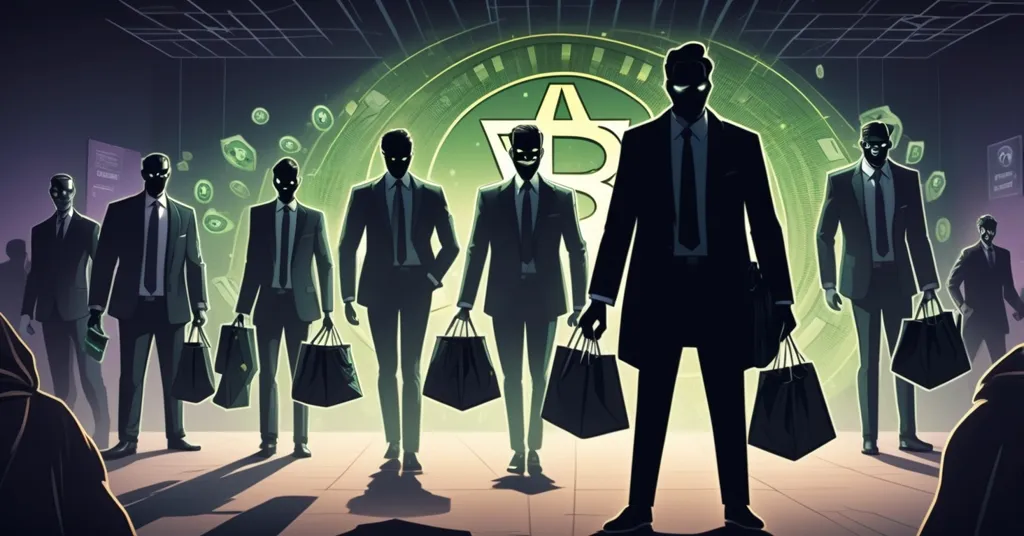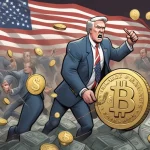Trump’s Crypto Allies Ditch Hacked Platform, Launch WLFI Amid Controversy

Trump’s Crypto Partners Abandoned Hacked Platform, Pocketed Millions
Donald Trump’s sons have launched World Liberty Financial (WLFI) with Zak Folkman and Chase Herro, who previously abandoned Dough Finance after a devastating $2.5 million hack. The new venture has stirred controversy, raising questions about trust, centralization, and political influence in the crypto space.
- Trump family launches WLFI with Folkman and Herro
- Dough Finance hacked, $2.5 million lost
- Promised compensation never materialized
- Justin Sun joins WLFI as advisor
- SEC investigation into Sun dropped
- Political scrutiny intensifies
The Dough Finance Hack
In July 2024, Dough Finance, a platform founded by Zak Folkman and Chase Herro, fell victim to a hack that resulted in a staggering $2.5 million in user losses. The root cause, as identified by Meir Dolev from Cyvers, was vulnerabilities in the platform’s “looping-related code.” For those unfamiliar, “looping” in coding refers to the repetition of a set of instructions, which, if not properly secured, can be exploited by hackers to drain funds. Despite initial promises to compensate the victims, Folkman and Herro failed to follow through, leaving investors like Jonathan Lopez, who reportedly lost $1 million, out in the cold. The duo then abandoned Dough Finance to launch WLFI, a move that left many questioning their integrity and commitment to their previous project.
WLFI’s Structure and Controversies
WLFI, the new venture launched by the Trump family in collaboration with Folkman and Herro, stands out for its centralization—a stark departure from the ethos of Decentralized Finance (DeFi). Typically, DeFi platforms operate without a central authority, promoting financial inclusion through blockchain technology. In contrast, WLFI’s structure sees the Trump family holding a 60% stake in WLF Holdco LLC, claiming 75% of net revenues from token sales and 60% from operations. This centralization has drawn criticism from experts like Jim Angel from Georgetown University, who noted that WLFI’s token structure offers little economic benefit to token holders. Similarly, David Krause from Marquette University argued that this setup excludes public investors from meaningful financial participation.
Despite the controversy surrounding Dough Finance, Eric Trump has defended Folkman and Herro’s performance at WLFI, stating:
“We are proud of the entire team. They have overachieved our wildest goals and our current trajectory is nothing short of incredible.”
This support comes even as Folkman and Herro face a lawsuit alleging fraud, misrepresentation, and a failure to act responsibly with others’ money. The legal battle adds a layer of complexity to the narrative, highlighting the risks and ethical challenges within the crypto industry.
Political and Legal Scrutiny
The involvement of Tron founder Justin Sun as an advisor to WLFI after a $30 million investment has added fuel to the fire. Interestingly, the Securities and Exchange Commission (SEC) paused its case against Sun, citing public interest. This move has not gone unnoticed, with Democrat legislators demanding an investigation into Trump’s crypto ventures, suspecting potential conflicts of interest and political influence. The involvement of high-profile political figures like Trump and Sun raises ethical concerns about influence peddling, as noted by former U.S. banking regulator Ross Delston. The complexity of legal claims against hacked crypto platforms and ongoing SEC investigations underscore the regulatory challenges facing the crypto industry.
Broader Context of Trump’s Crypto Ventures
The Trump family’s involvement in the cryptocurrency space extends beyond WLFI. From a meme coin to crypto ETFs and a mining operation, their ventures are expanding. This broader context highlights their significant presence in the crypto sector. Some investors in WLFI tokens believed Trump’s involvement would ensure the project’s success, showcasing the influence of political figures on investment decisions. This raises questions about the motivations behind investing in such projects and the role politics plays in the crypto world.
The Dough Finance hack serves as a grim reminder of the risks inherent in DeFi platforms. It underscores the importance of robust security measures and risk management, areas where Dough Finance evidently fell short. The incident also highlights the need for accountability and transparency in the crypto space, particularly when high-profile figures are involved.
Key Takeaways and Questions
- What was the impact of the Dough Finance hack?
The Dough Finance hack in July 2024 resulted in $2.5 million in user losses, with at least one investor, Jonathan Lopez, reportedly losing $1 million.
- How did Folkman and Herro respond to the hack?
Folkman and Herro initially pledged to compensate victims but failed to do so, instead launching WLFI with Donald Trump’s sons.
- What is the current status of Folkman and Herro’s involvement with WLFI?
Despite the controversy and ongoing lawsuit related to Dough Finance, Folkman and Herro continue to be supported by WLFI, with Eric Trump defending their performance.
- What role does Justin Sun play in WLFI?
Justin Sun joined WLFI as an advisor after investing $30 million in the firm, and the SEC dropped its investigations into his token sales following his involvement.
- Why have Democrat legislators demanded an investigation into Trump’s crypto ventures?
Democrat legislators demanded an investigation after the SEC dropped its investigations into Justin Sun’s token sales, raising concerns about potential political influence and conflicts of interest in Trump’s cryptocurrency ventures.



